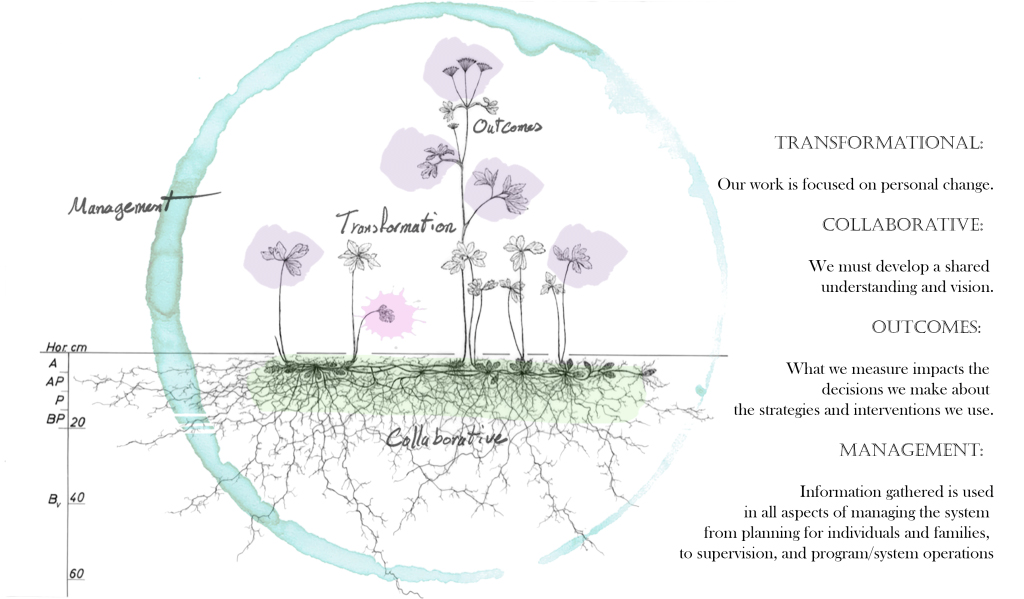TCOM is an approach grounded in a philosophy of a single shared vision–helping people achieve their health and wellness goals as they navigate healthcare, child welfare, juvenile justice, behavioral health, education, and other complex systems.
What is TCOM?
Transformational Collaborative Outcomes Management

TCOM CORE PRINCIPLES
- Human-serving systems and enterprises have a primary mandate of facilitating and supporting personal change (transformation).
- Human serving systems and enterprises are inherently complex as a result of the number of humans involved. This diversity of aims and perspectives can only be managed through meaningful integration. Integration among people is best managed through collaborative processes.
- All partners in human serving systems and enterprises have the responsibility for collecting, managing and using accurate, relevant, and respectful information about the people served.
TCOM GUIDING VALUES
- All assessments and interventions should be culturally responsive and respectful.
- People should have voice and choice with regard to participating in any assessments and interventions.
- All interventions should be personalized, respectful and have demonstrable value to the people they serve.
- Collaborative processes, inclusive of children and families, should be used for all decisions at all levels of the system.
- Consensus on action is the primary outcome of collaborative processes.
- Information about the people served and their personal change should always inform decision making at all levels of the system.
- All of our work should be accomplished with respect of the earth and our impact on it.
TCOM STRATEGIES
TCOM’s primary objective is to ensure that all decisions are informed by both an understanding of the needs and strengths of people to be helped and knowledge of what forms of help are most effective for different people and circumstances. To accomplish this objective, TCOM uses a set of strategies.
- Communimetric measures of the clinical, functional and wellbeing status of people seeking help. These include the CANS, ANSA, FAST, CAT, GATE, and RISE.
- Person-centered planning processes that support the development of customized theories of change to match the circumstances of individuals or families who come to us for help.
- Aspirational management approaches to help organizations in any helping system shift from a compliance-based approach towards a management strategy that emphasizes the impact of the work on others.
- Aspirational governance approaches to help systems value effectiveness of individual helpers, programs and organizations.
- Safety culture approaches to support effective learning from bad outcomes and difficult circumstances.